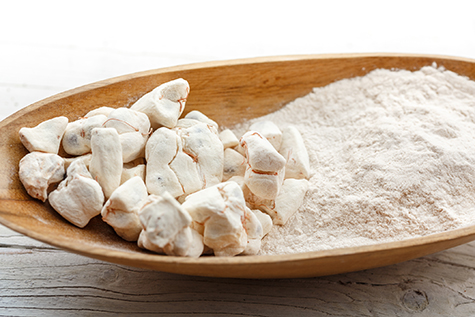Health Benefits of Baobab

Nutritionists have identified baobab popularly called ‘Kuka’ in Hausa language as one of the foods with health benefits. The tree, which is widely grown in the northern part of the country, is said to be high in fibre , vitamin C and nutrients such as potassium and phosphorus.
Baobab fruit is also high in calcium, magnesium, zinc, vitamin A, thiamin, B6 and bioflavonoids. It also acts as a prebiotic, that is a type of dietary fibre that feeds the friendly bacteria in your gut. This helps the gut bacteria produce nutrients for your colon cells and leads to a healthier digestive system.
Researchers in a study published in Critical Reviews in Food Science and Nutrition found that baobab pulp is particularly rich in vitamin C, with 40g covering more than 100% of the Recommended Daily Intake (RDI).
The study also revealed that baobab leaves were particularly rich in calcium. The seeds and kernels of baobab fruit have a high lipid content while the pulp and leaves exhibit high antioxidant properties.
Baobab is said to have six times the vitamin C of oranges, five times the magnesium of avocados, 10 times the fibre of apples, two times the antioxidants of acai berries, two times the calcium of milk, and four times the potassium of bananas.
A study conducted by Oxford Brookes University showed that polyphenol-rich baobab fruit reduces starch digestion and glycemic response in humans.
Some of the health benefits of consuming baobab include immune support, improving digestive health, general hydration and skin health, among others.
Try our delicious Baobab Butter Squares!

